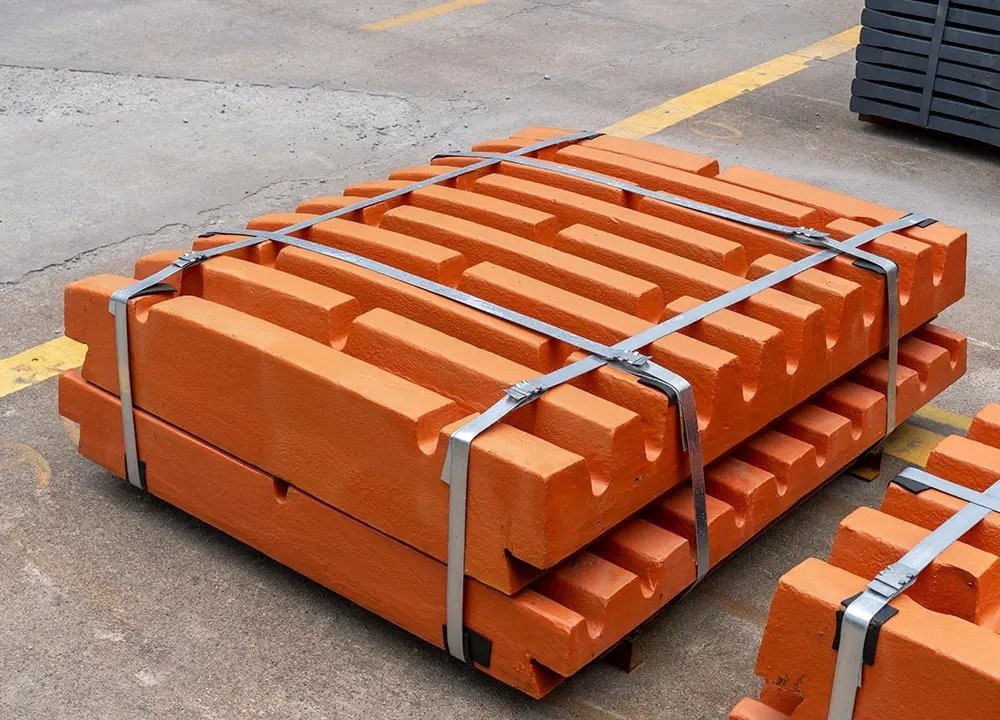Durable and high-quality spare parts and wear parts are available in our stock.
Fast Contact: +905426661111
Chrome cast blow bars are essential components used in crushers to improve performance and durability. Manufactured from high-chrome alloys, these blow bars offer exceptional hardness and wear resistance, making them ideal for crushing hard and abrasive materials. The high chromium content in these blow bars forms a tough surface that protects against wear, impact, and deformation during crushing operations. This resistance significantly extends the service life of the blow bars, reducing downtime and maintenance costs for crushing plants.
In addition to wear resistance, chrome cast blow bars provide excellent corrosion resistance. This feature is particularly beneficial in environments where moisture or chemicals are present, as it prevents rust and other forms of corrosion that could weaken the blow bars and compromise crusher performance. Moreover, these blow bars maintain a balance between hardness and toughness, allowing them to absorb impact energy without cracking, which is crucial for the demanding conditions crushers often face.
 English
English
 Le français
Le français
 Türkçe
Türkçe
